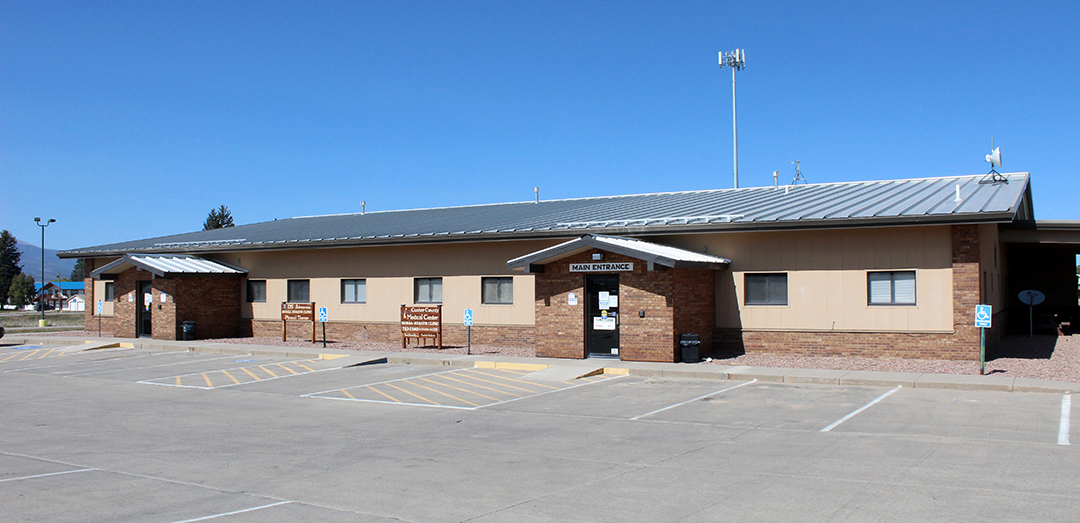The West Custer County Hospital District (WCCHD) held its regular meeting on November 30. EMS Co-Manager Stephanie Giebeig led off her update by reporting that the District might have to pitch in to help pay an assistant for EMS Medical Director Dr. Jeremy DeWall, who is overseeing a number of other regional EMS units. Although based out of the UC Health system, UC will not pay for this assistant themselves, so each of the agencies DeWall oversees in his capacity as Medical Director is discussing chipping in some money from their budgets to fund the position. Giebeig said that the WCCHD’s share would be somewhere between $15,000 and $20,000 per year.
The Board discussed how to add this line item to the budget. “When does [DeWall] need to see this?” asked Treasurer Barry Keene. “Sooner rather than later,” Giebeig replied: “The system as it is right now is not sustainable for another year – the RETACs (Regional Emergency Medical and Trauma Services Advisory Councils) are going to be hit too.”
“There are only 6 million Colorado residents, but about 90 million tourists a year – maybe a nice lodging tax [would help solve the funding problem],” Keene observed.

“Search and Rescue is also under his medical directorship as well,” said Giebeig: “It makes sense to keep going – the question is how do we pay for it, how do we make it equitable [among agencies].”
Giebeig reported that EMS run numbers in October was 41, with no usage of the emergency telehealth call system: “A lot of people still don’t know that that’s a resource.” She also gave a debrief on the “MCI,” or multi-casualty incident, that EMS had had to deal with at a site of a triple homicide on Rocky Ridge Road earlier in the month: “I have been in talks with [Director] Robyn (Knappe) at OEM – there needs to be some kind of tactical EMS training.” Giebeig also mentioned the need to purchase more bulletproof vests: “I want one in every truck.”
Custer County Sheriff Rich Smith, who was present at the meeting, also spoke about the Rocky Ridge murder scene and praised the efforts of the EMS crew to save the gunman’s fourth victim.
Board member Dr. Alma Golden also praised the EMS team before going on to give her report on the Long-Range Planning Committee, saying that a draft survey for Custer County residents was nearing completion for mail-out: “I think it’s very rational to say that the Hospital Board wants to plan for the future – we are the oldest county in Colorado, and we want to be prepared to take care of people as they age.”

The Board discussed budgeting for the printing and postage costs, for the mailing to be sent to every Custer County household, and adding “wording about who we are and why we are doing this,” as well as the need for using local media to publicize the survey and existing services. After the clinic report, which revealed that there had been 558 visits in October, with 63 new patient visits, the Board turned its attention to profit and loss statements for 2023 and the 2024 budget.
Board member Thomas Neches reported that income had gone down in the months of October and November, which Keene said would be leading to a likely loss for the year of $50,000. Keene led a discussion of revenue flows, which will be scanty in the first couple of months of 2024 until the mill levy money comes in March. He also spoke of his pushback against recent efforts, led by County Commissioner Bill Canda, to persuade the county’s special districts to agree to deprive themselves of funds by lowering their mill levies in an attempt to save county residents a little money on their property taxes.
Finally, Keene gave an update on Workforce Housing Board activities, pointing out that seven lots in Silver Cliff had been set aside for a self-help housing program similar to Habitat for Humanity, and would be a way for EMTs and clinic workers to be able to afford housing in Custer County.
The next regular WCCHD meeting is set for December 28, 2023.
– Elliot Jackson


